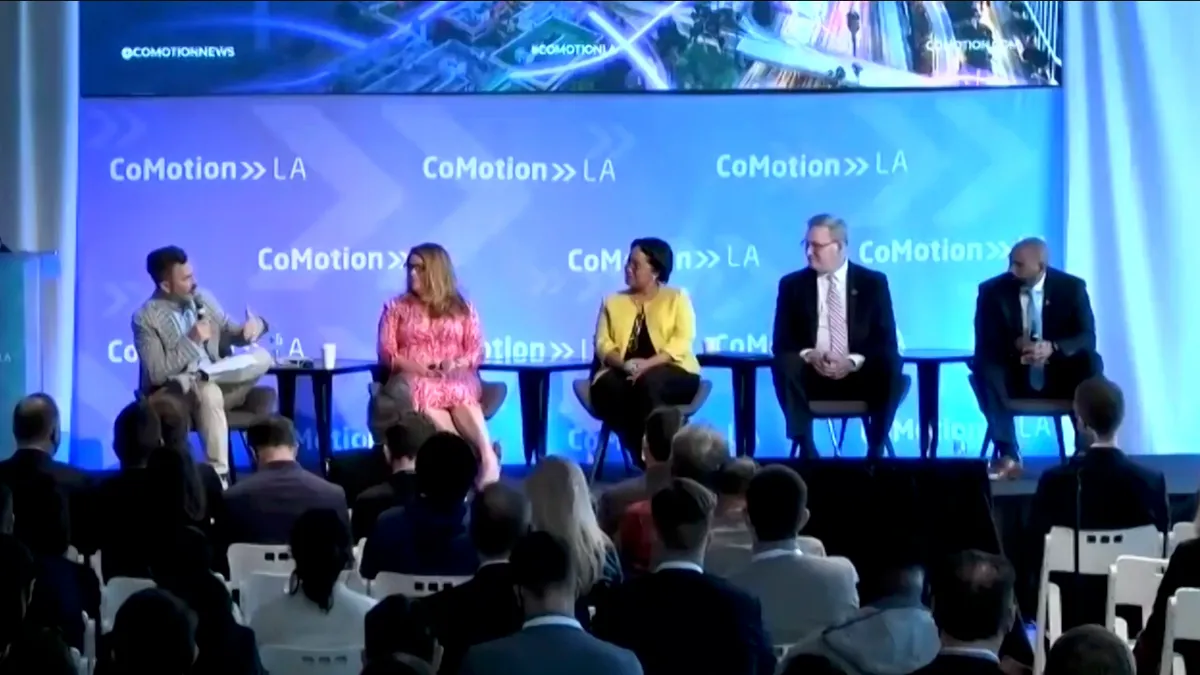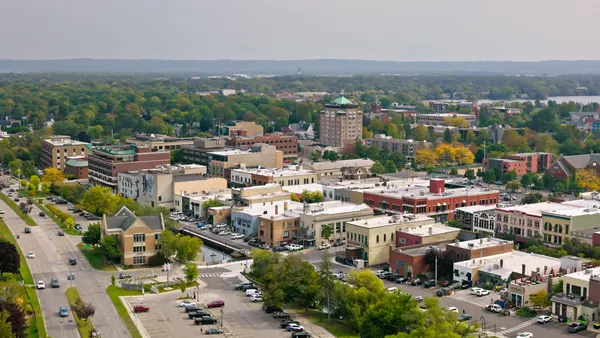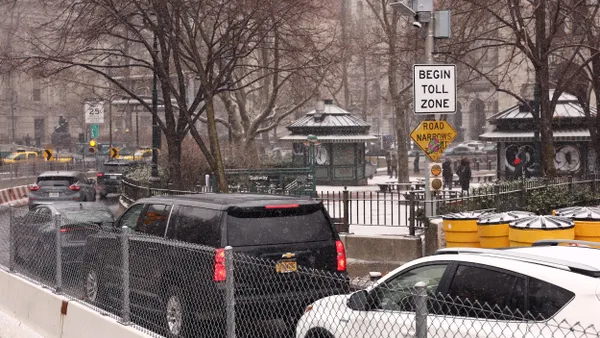Remote work, changes in ridership and financial pressures created by the pandemic revealed the strengths and weaknesses of current transit networks.
At the CoMotion LA conference last week, transportation leaders shared their views on urban mobility reaching an inflection point. Eulois Cleckley, CEO of the Department of Transportation and Public Works for Miami-Dade County, said the COVID-19 crisis spurred the government to "think outside of the box, be more nimble and react much more quickly."
Four panelists representing cities in the U.S., Canada and the Netherlands, along with the previous transportation department leader in Chicago and Washington, D.C., and partner at consulting firm CityFi Gabe Klein, agreed that the pandemic signaled a break from past assumptions and practices.
"When you think about it, it's not just urban mobility at an inflection point," said Klein. "It's really our society at an inflection point worldwide."
Stephanie Wiggins, who formerly led the Los Angeles regional commuter railroad Metrolink and is now CEO at LA Metro, called the pandemic "a real disruptor for transit agencies." Since joining LA Metro in June, she said that she has spent much of her time hearing from transit customers, employees, contractors and advocates. "We need to recast and reframe our entire organizational culture. We must go back to basics and align our culture with the needs of our customer," she said in her keynote address.
In Cleckley's view, the pandemic "challenged our traditional way of thinking" on the meaning of transportation and mobility, and how it serves neighborhoods that need it most. Likewise, Roald Lapperre, vice minister for the environment at the Netherlands Ministry of Infrastructure and Water Management, said in his remarks that "the transition towards smart and sustainable mobility should also be a socially just transition in which a good functioning public transport network plays a key role."
Many transit agencies faced financial hardships as a result of severe declines in ridership during the pandemic. Los Angeles Department of Transportation General Manager Seleta Reynolds observed that "transit agencies that relied most heavily on farebox recovery have suffered the most during the pandemic." She added that this could be an opportunity to change how transit is funded, and "make transit either very low cost or free."
That's the concept behind universal basic mobility, which would give every resident "access to the transportation services they need to achieve a baseline level of success." Pittsburgh, as well as Bakersfield and Oakland, California, are testing such programs.
Wiggins and Reynolds concurred that universal basic mobility should not be limited to specific transportation modes such as buses and trains. "We have to be pretty honest about the fact that if you don't have access to a car, you don't have economic mobility in most American cities," Reynolds said.
And while the bipartisan Infrastructure Investment and Jobs Act makes new funding available to transit agencies, "It's not enough," Wiggins said.
Concerns about empty office space and closed businesses could also affect future planning. "I'll just break the bad news that central business districts and real estate in downtowns might suffer for longer," Reynolds said.
Jerry Dobrovolny, commissioner and chief administrative officer of Metro Vancouver in Canada, disagreed. "I wouldn't give up on the downtowns," he said. "Cities have been around for thousands of years."
But there was no disagreement among the panelists about the need to respond with new and better mobility services and options.












